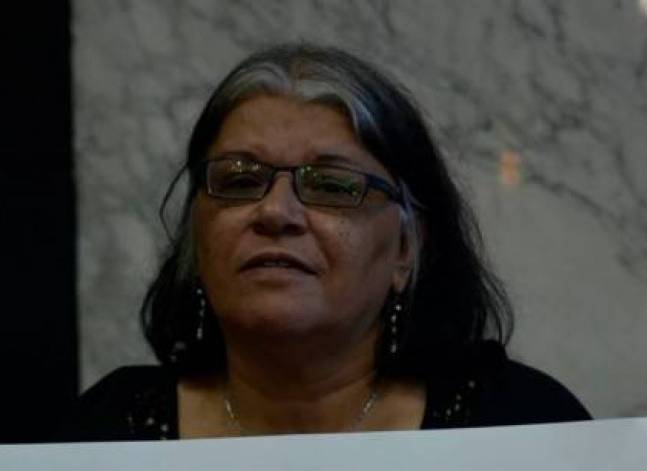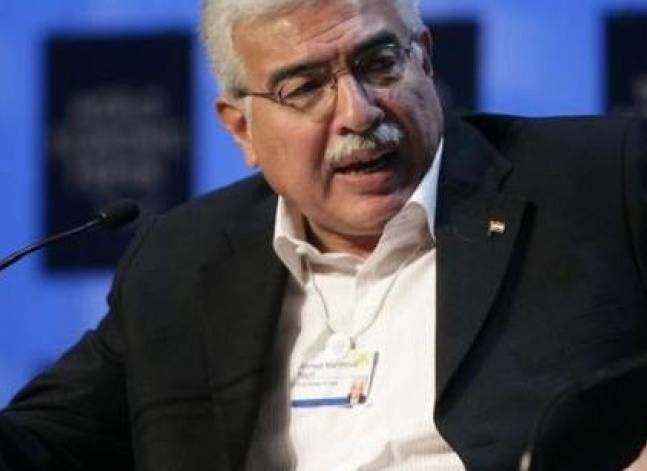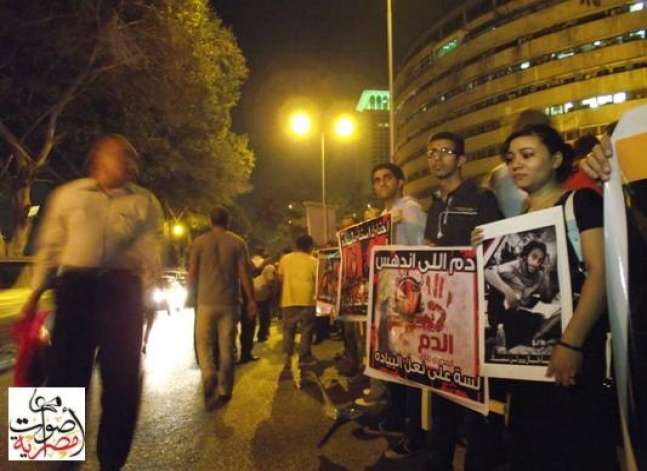Latest NEWS
- Aswat Masriya, the last word
- Roundup of Egypt's press headlines on March 15, 2017
- Roundup of Egypt's press headlines on March 14, 2017
- Former Egyptian President Hosni Mubarak to be released: lawyer
- Roundup of Egypt's press headlines on March 13, 2017
- Egypt's capital set to grow by half a million in 2017
- Egypt's wheat reserves to double with start of harvest -supply min
- Roundup of Egypt's press headlines on March 12, 2017
Egypt's rights groups call for legal reform to combat 'excessive' use of travel bans
CAIRO, Nov 23 (Aswat Masriya) - Two Egyptian rights groups warned on Wednesday against the marked increase in "arbitrary" travel bans used against activists, academics, intellectuals, media and political opposition figures over the past two years.
The Cairo Institute for Human Rights Studies (CIHRS) and the Association for Freedom of Thought and Expression (AFTE) issued a joint report addressing the “increasingly excessive and arbitrary use of the travel ban,” describing it as an “unconstitutional form of political retaliation and psychological harassment.”
Tens of Egyptians have been subjected to “arbitrary” travel bans over the past two years, with some being banned in connection with an ongoing court case, while others were banned by security directives.
“In both cases, the right of the targeted individual to be informed about the grounds and duration of the ban is violated,” the report stated.
The report documents 80 cases of people who were banned from travel over the period from June 2014 to September 2016. Among those documented, there were six cases of collective bans that involved 48 people and 32 individuals cases.
More than 83 percent of the sample were banned from travel after security authorities stopped and interrogated them at the airport. At least 10 were banned in connection with case No. 173 (2011) known as the foreign funding case.
The report also indicated that 47.5 percent of those subjected to travel bans were human rights defenders.
The majority of the travel bans documented by the report involve “unlawful practices and procedures” including illegal interrogation and inspection as well as the confiscation of their personal papers and their passports.
According to another count conducted by the research center, ‘Daftar Ahwal’, around 217 individuals, Egyptians and foreigners, were banned from travel over the same period. The group cited political and human rights work as the reason behind their prevention from travel.
Documented travel bans
El Nadeem Center’s Director Aida Seif El Dawla was banned from travel on Wednesday as she attempted to board a flight to Tunisia to attend a conference bringing together organisations working on the rehabilitation of victims of violence in North Africa.
Seif El Dawla joins a growing list of human rights defenders including Hossam Bahgat and Gamal Eid, who are banned from travel for their involvement in the foreign funding case.
Earlier in November, prominent human rights lawyer Malek Adly was scheduled to travel to France when he was stopped and questioned at the airport and prevented from boarding his flight.
According to Amnesty International, Egyptian authorities have banned at least 12 other directors, founders and staff members of Egyptian non-governmental organisations (NGOs) from travelling abroad since former president Mohamed Mursi's ouster in July 2013.
In February 2016, lawyer Nasser Amin wrote on his Facebook page that he was stopped at the Cairo Airport on the grounds of holding a name similar to that of a wanted traveler, according to the report. He was later banned from travel in June.
A female rights defender, who was cited by the report under a pseudonym, was banned from travel in May 2015 after she was stopped at the airport and had her passport confiscated.
In her testimony, she says, “the police officer told me that I was banned from travel for not notifying the security authorities of my travel beforehand, but I don’t know how to contact them…I have to inform them every time before my travel now and be subjected to their ‘chat’.”
Rights groups regard such "chats" as unofficial summons which in reality form "a lengthy interrogation" during which banned individuals are subjected to "tacit threats and other forms of intimidation."
The report includes dozens of other testimonies of rights defenders, journalists, activists and religious figures who were banned from travel.
Legal framework
The organisations state that there is no law regulating the travel ban. However, the constitution as well as international treaties provide some basic guidelines regarding the issue.
Article 62 of the constitution stipulates that travel bans should be issued by a judicial body and should be of defined duration and cause. Article 54 requires all persons whose freedom is restricted to be immediately notified of the reasons for the restriction.
The International Covenant on Civil and Political Rights (ICCPR), which Egypt ratified in 1982, upholds the freedom of movement of persons, clearly stating that there should be no restrictions placed on this freedom except in cases specified by law.
However, the legal vacuum caused by a lack of legislation on the travel ban has led to the presence of several administrative decrees and security directives “that contravene the constitution” by requiring security approval before travel to specified countries or for university faculty traveling abroad on academic missions.
Mohammed Abd al-Salam, researcher at AFTE, said, “The security apparatus believes that the lack of a statute regulating travel bans means they have a free hand to harass political activists, rights advocates, journalists, and academics, and to use the ban as means of punishing the free expression of opinion, in a clear violation of the law and international conventions.”
The report provided six recommendations to end the rising phenomenon of travel bans, urging the interior ministry, judicial bodies and the prosecution to respect constitutional principles, stop targeting rights defenders, and adopt laws and statutes that safeguard the freedom of movement.
This would also entail repealing administrative directives that necessitate approval before travel, according to the report.
















